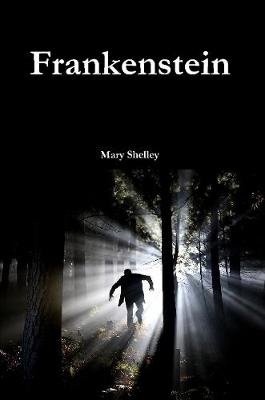Reviewed by Michael @ Knowledge Lost on
‘The Modern Prometheus’ tells the story of the Monster Frankenstein, confused and unsure from the very first day of life, found himself hiding in the woods watching people and learning how to find food, create a fire and how to differentiate between the feelings of happiness and sadness. Watching a family in poverty taught Monster Frankenstein many things and he started chopping wood and shoveling snow for the family while they slept. His loneliness finally drove him to show himself to this family who ended up running away in fear. With a mixture of loneliness and anger, he seeks out his creator, finding his way to William where he decides to kidnap him for companionship and ends up accidentally strangling him.
This is where the two stories meet and monster Frankenstein pleads with Victor saying he’s ‘a good creature turned bad by unforgiving humans who scoffed at friendship’. The monster pleads with Victor to make him a companion which he would take and never be heard from again. Victor reluctantly agrees but found it harder and harder to do, even though his family was in danger. Victor began to realize the female companion could wreck much havoc by giving birth to more monsters and refusing to be with the monster as a mate altogether.
Monster Frankenstein swears revenge and goes about killing everyone close to Victor in attempt to show Victor what it feels like to be alone. As Frankenstein dies, the monster appears in his room and begs his dead body for forgiveness.
In the end the story has no true villain or hero. Monster Frankenstein and Victor Frankenstein were both portrayed as hero and villain. The story also leaves you wondering on how you treat others, do our actions end up turning people into a ‘monsters’? Overall this was a brilliant story, although the language was at times hard to understand, it is still worth the read.
This review originally appeared on my blog; http://www.knowledgelost.org/book-reviews/genre/gothic/frankenstein-or-the-modern-prometheus-2/
Reading updates
- Started reading
- 18 August, 2011: Finished reading
- 18 August, 2011: Reviewed
- Started reading
- Finished reading
- 18 August, 2011: Reviewed
- Started reading
- Finished reading
- 18 August, 2011: Reviewed
